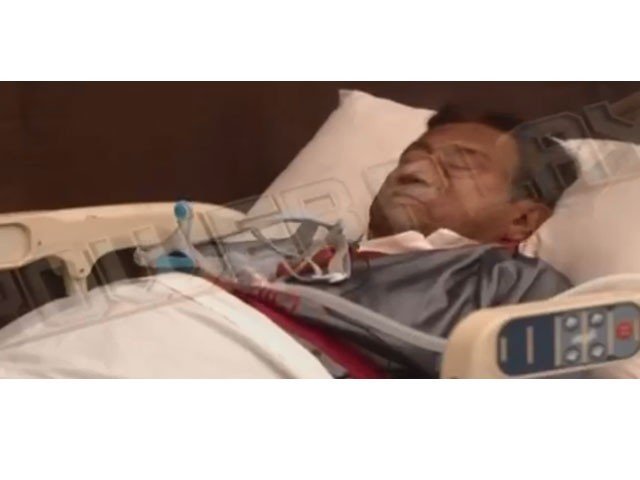DG ISPR Asif Major General Asif Ghafoor, in a statement issued following the verdict in the high treason case against General retired Pervez Musharraf on Tuesday, said the decision given by special court has been received with lot of pain and anguish by rank and file of Pakistan Armed Forces. The statement came after a meeting of the top military leadership held at the General Headquarters in Rawalpindi in the wake of the judgment. He stated: “An ex-Army Chief, Chairman Joint Chief of Staff Committee and President of Pakistan, who has served the country for over 40 years, fought wars for the defense of the country can surely never be a traitor. The due legal process seems to have been ignored including constitution of special court, denial of fundamental right of self defence, undertaking individual specific proceedings and concluding the case in haste”.
The three-judge special court – comprising Justice Waqar Ahmad Seth, Justice Nazar Akbar and Justice Shahid Karim – handed down 2-1 split verdict convicting Pervez Musharraf of hight treason and sentenced to death after hearing arguments from the new prosecution team appointed by the government. A detailed verdict will be issued within 48 hours. “Pervez Musharraf has been found guilty of Article 6 for violation of the Constitution of Pakistan,” government law officer Salman Nadeem said. When the proceedings started on Tuesday, the prosecution team, led by Advocate Ali Zia Bajwa, prayed the court amend Musharraf’s indictment. He said the government wanted to also frame charges against aiders and abettors as provided in the sub-clause of Article six of the Constitution. “It is imperative for all accused to be tried simultaneously. The aiders and abettors should be tried as well,” said Advocate Bajwa.
Pervez Musharraf had joined the Pakistan Military Academy at Kakul, and after graduating from the institution in 1964, he was subsequently commissioned in the Pakistan Army. He served in the elite Special Services Group (SSG) and his first battlefield experience came during the 1965 Indo-Pak war. He served in the elite Special Services Group (SSG) from 1966-1972, and during the 1971 war with India, Musharraf was a company commander of an SSG commando battalion. After 1971, he continued to excel in several military assignments and was given promotions. In October 1998, he was appointed as chief of army staff by the then premier Nawaz Sharif. In October 1999, the army overthrew Nawaz’s government in a counter-coup, as was dismissed by the then PM Nawaz Sharif after differences over Kargil when he was returning from Sri Lanka and was air-borne.
When the case was filed by the PML-N government, many observers had then perceived that politicians and judiciary were collaborating to sort out Army. Questions were being asked as to why treason case has been started on the basis of 3rd November 2007 emergency and not from 12th October 1999. Constitutional expert and renowned lawyer S.M. Zafar appearing at a local TV channels had more than once remarked: “Suspension or keeping the constitution in abeyance was not an offence in November 3, 2007, as it was added to the article 6 in the 18th amendment”. He had stated that law cannot be applied with retrospective effect. Anyhow, almost all the parliamentary leaders of different political parties represented in the House had supported the prime minister, but later changed their stance.
In 2014, when hearings on the case against Pervez Musharraf started, there was almost a consensus among constitutional experts that Musharraf’s collaborators should also be tried under Article 6 of the Constitution, as the clause two of Article 6 states that persons aiding, abetting or collaborating with a person who abrogates the Constitution shall also be guilty of high treason. It was in this backdrop that some analysts said that instead of General (retd) Pervez Musharraf’s act of 12th October 1999, the entire focus was on his proclamation of 3rd November 2007. Pervez Musharraf’s lawyers had stated that the then members of the cabinet, governors and government functionaries should be held equally responsible. Furthermore, their line of argument was that had the October 1999 act not been legitimized by the judiciary, November 2007 would not have happened.



